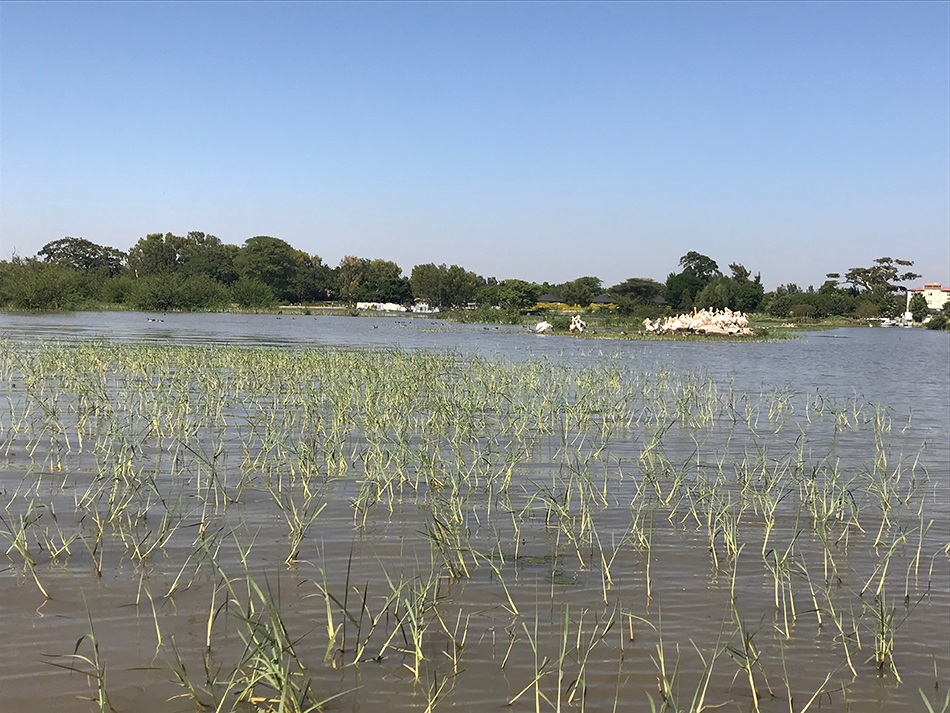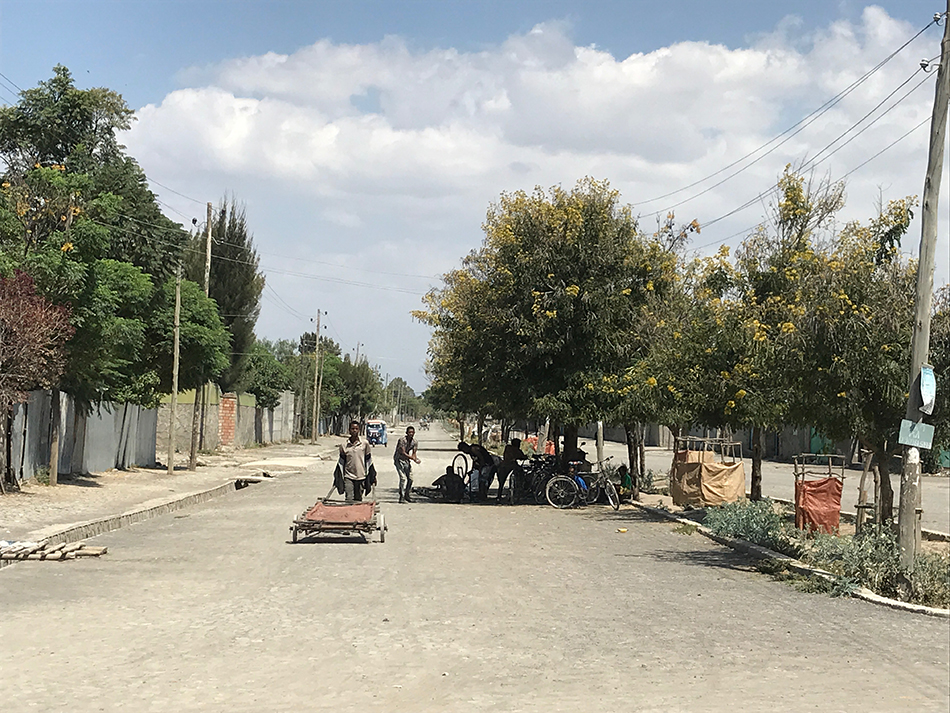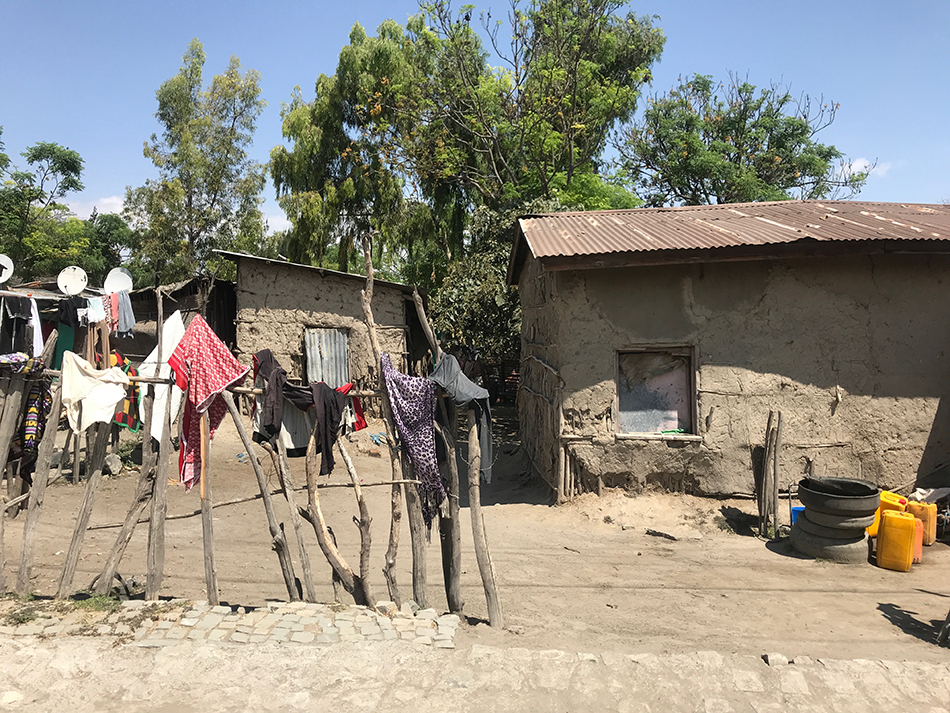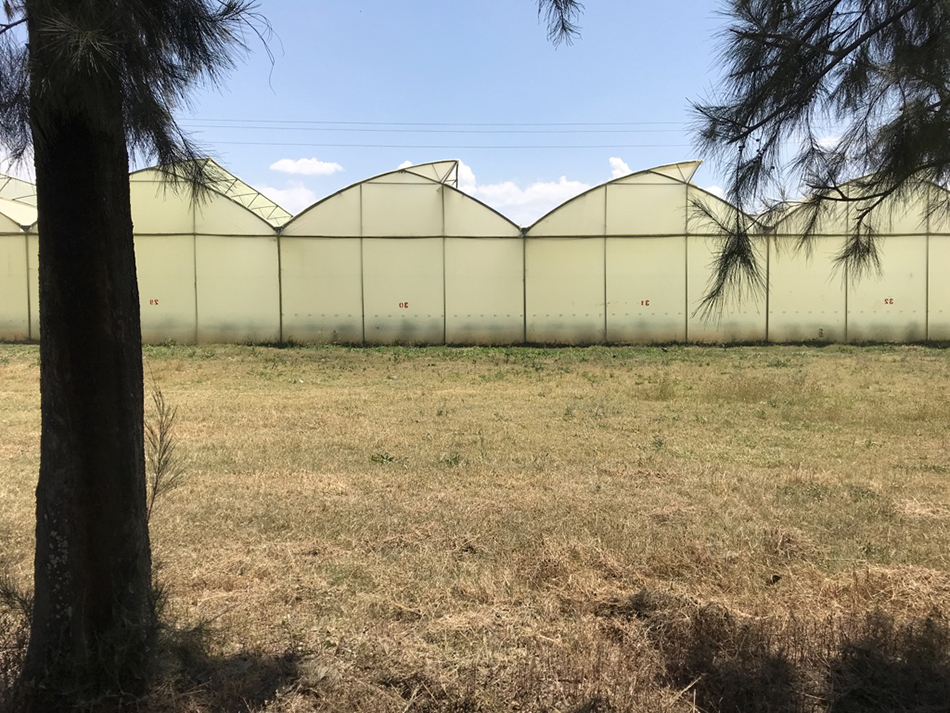Urbanizing
Ethiopia.
Zeway
Prof. Fabienne Hoelzel, Visiting Prof. Dr. Zegeye Cherenet, AM Ute Vees, LBA Dirk Meiser
Good command of English (written and spoken); willing to work with complexity; willing to work in an intercultural set-up; community spirit.
With Ute Vees, ute.vees@abk-stuttgart.de until Friday, 05.04.2019 (we accept a maximum of 6 students)
Attendance mandatory: Tuesdays and Wednesdays, 9 AM to 6 PM
Tuesday, 09.04.2019, 4 PM, room 208
09.07.2019, 2 PM, room 208
30.09.–11.10.2019 (travel subsidies available)
AM Ute Vees
As a traditionally rural-agrarian country, Ethiopia’s urban population is roughly 20 percent and thereby one of the lowest in the sub-Saharan region. For centuries, the country remained relatively unaffected by colonialization and globalization. The country’s current social, political, and cultural character is to a large extent defined by its continuous isolation throughout history. Today, as a result of intended industrialization processes and of a significant population growth, the East African country is under substantial urbanization pressure. The authoritarian government reacts with an ambitious yet to be developed program that aims to build up to 8,000 so-called urban rural centers over the coming years and decades. It is challenging without a doubt, and it is exciting – at least for urban designers and planners. One way or the other, Ethiopia faces currently a far-reaching lack of capacities, professionals, and tools to tackle the task. Ethiopia’s current and future challenges can also be seen as a burning mirror of new urban phenomena. However, there is a huge gap between the local academic debates addressing the complexity in the matter and the government’s sort of simplistic “problem-solving” mode.
In the summer semester 2019, under the participation of four Master exchange students of the EiABC Addis Abeba, the region of Zeway, located 170 kilometers south of the capital city, serves as urban-design studio laboratory to think about approaches to rapid urbanization processes in the sub-Saharan world region, where urban growth and rural-to-urban migration lead at a breath-taking to significant transformations at almost every level. Zeway is home to one of largest flower productions in East Africa, owned by a Dutch firm. It has created a lot of jobs but there are a lot of controversies around the related environmental devastation and the destruction of local businesses.
The first third of the studio focuses on tools and strategies of scenario thinking that is understood as a research method investigating possible, desirable, and normative urban futures at the beginning of an urban design process. This first part of the urban design studio will conclude with a 10-day DAAD funded Spring School on the topic of scenario thinking. The Spring School includes an intense 5-day workshop under the participation of 10 Ethiopian PhD and Master students in Bodman at Lake Constance.
The remaining two thirds of the semester concentrate on the urban design implementation of the previously developed strategies. We understand the urban design process itself as continuous and critical research loop. The ongoing and expected processes of rapid urbanization force urban designers, urban planners, and architects to apply new methods and planning strategies. Instead of rolling out classic masterplans there is a high need of a critical, discursive and inclusive urban design thinking. The focus of the studio will be on landscape planning and design as well as on water cycles and management as structuring elements of the urban design proposals. Based on the scenarios of the first studio phase, the students will develop jointly a comprehensive urban design framework strategically implemented with appropriate urban design projects. While the urban design framework is developed by the entire group, the urban design projects will be developed in groups of two students each.
The urban landscape seminar (ECTS 5) is fully integrated into the urban design studio (ECTS 12,5); the students will hence be awarded a total of ECTS 17,5.
It is strongly recommended to attend the seminar “Toward a New Theory of Urbanization” with Visiting Professor Dr. Zegeye Cherenet (Mondays, 2 PM).
(photographs: Fabienne Hoelzel)



